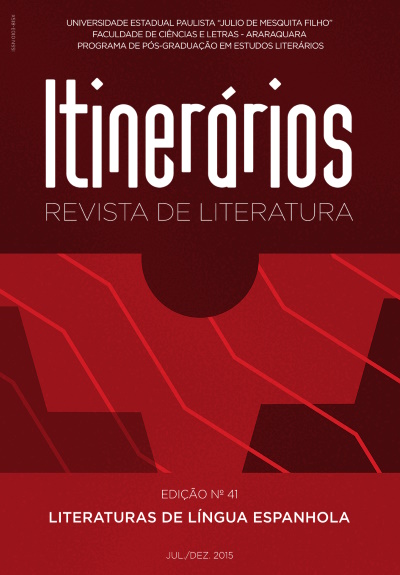O vazio como metáfora na obra de Roberto Juarroz
DOI:
https://doi.org/10.58943/irl.vi41.8425Palavras-chave:
Roberto Juarroz, Poesia argentina, Vazio, Budismo, Metáfora,Resumo
Investigamos neste artigo alguns pontos de contato entre a obra do escritor argentino Roberto Juarroz (1925-1995) e o Budismo Zen, pelo qual o poeta manifestou grande interesse. Tomando como eixo de nossa análise os kōans, expressões enigmáticas em que o paradoxo desempenha um papel fundamental, compreendemos melhor não apenas a utilização frequente dos paradoxos na obra de Juarroz, mas também outro aspecto praticamente ignorado pela crítica até o momento: o uso da metáfora pelo autor. A afirmação de Davidson, segundo a qual uma metáfora não diz algo de novo, mas aponta para um aspecto que comumente não notaríamos, ajuda a elucidar parte do caráter enigmático e desconcertante da poesia de Juarroz: como no caso dos kōans, parte significativa dessa obra não pede que a compreendamos em termos estritamente discursivos, mas que transformemos nosso vocabulário – e, com isso, transformemonos – com ela. Evidencia-se, assim, que a apropriação da cultura oriental por parte de Juarroz difere daquela que predomina na literatura hispano-americana da época, fundamentalmente por sua ênfase no aspecto etopoético (e não apenas estético) da literatura – que o fará buscar no kōan, e não no haiku, um modelo para sua própria criação.
Downloads
Publicado
Edição
Seção
Licença
Os manuscritos aceitos e publicados são de propriedade da revista Itinerários. É vedada a submissão integral ou parcial do manuscrito a qualquer outro periódico. A responsabilidade do conteúdo dos artigos é exclusiva dos autores. É vedada a tradução para outro idioma sem a autorização escrita do Editor ouvida a Comissão Editorial.

